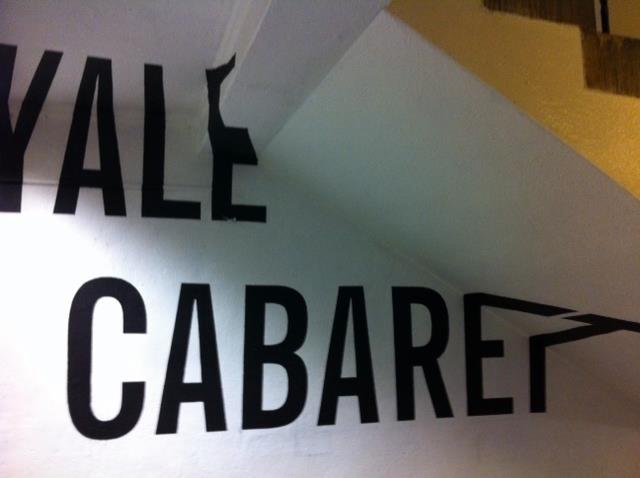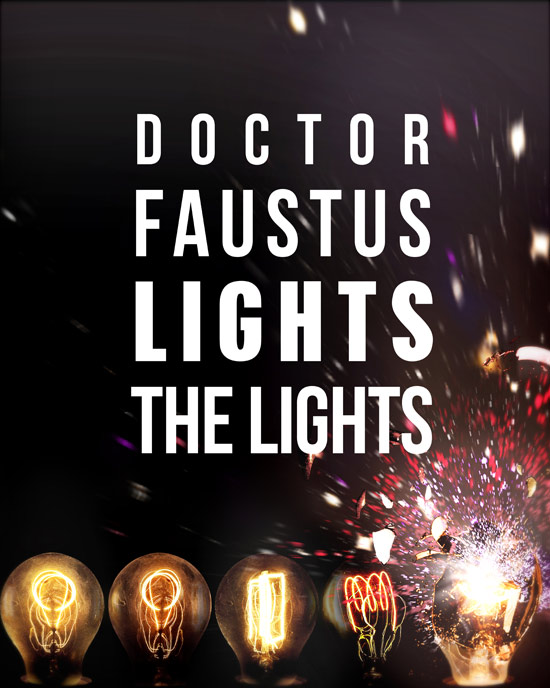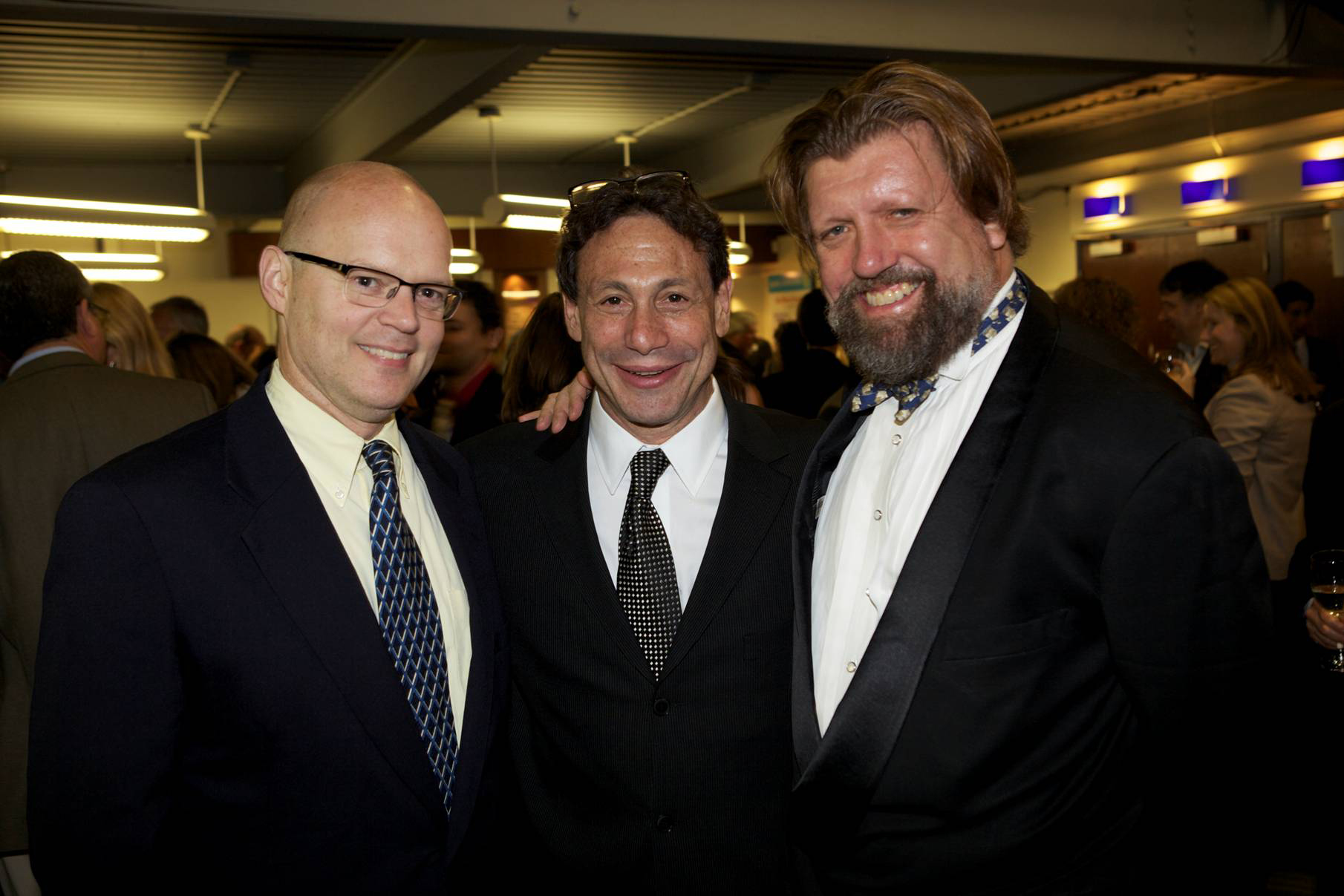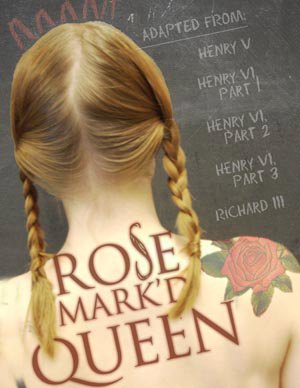This year, the 7th Annual Carlotta Festival at the Yale School of Drama, a showcase developed by Paula Vogel, Pulitzer-winning playwright and Chair of the YSD Playwriting Department, for the school’s graduating playwrights, features three plays that explore the vicissitudes of that oft-misunderstood creature, the human male. In Fox Play, which begins the festival on May 4th, the focus is on how men grieve; in Petty Harbour, opening May 5th, the story is a tale of forgiveness involving a patriarch and his three sons; and The Bachelors, opening May 6th, looks at the possibilities for romance outside the “bromance” of three thirtyish guys, long-time friends and housemates.
For Jake Jeppson, author of Fox Play, the issue is to explore what he calls “the ideal masculinity of an ideal America,” a code of conduct that doesn’t allow grief to be aired easily among men. His main characters are isolated males who have suffered a loss: Franklin, an elderly shoesalesman, is a widower; Sean, a much younger man, is “an aspiring YouTube personality” who mainly posts videos of the girlfriend that got away. Both begin hearing voices that lead them into the woods outside Washington D.C. where they live (and where Jeppson grew up). But what they find in the woods departs from their prosaic realities in favor of something akin to magical realism.
For this phase of the play—a two-act boasting 14 characters played by a cast of 9 actors—Jeppson draws upon the art of James Prosek, a Yale grad and Peabody affiliate, who specializes in “unnatural history.” One of Prosek’s taxidermied fantasias—a winged fox—figures in the play as a talismanic creature. For Jeppson, Prosek’s idea that “the real myth is the myth of order” opens up possibilities for how imaginative and empathetic interactions outside our usual modes of conduct can lead to release.
But don’t get the idea that a play about grief is a downer. Jeppson’s play also goes for laughs and a sense of the absurd in its blend of silly and serious. Like Prosek’s enhanced creatures, Jeppson’s play offers a mash-up in which a historical figure like Grover Cleveland can preside over a forest full of eccentrics, all coping in entertaining ways with what might be called “our national wound.”
For Martyna Majok, from Poland by way of New Jersey and the University of Chicago, taking on an epic two-act on the theme of patriarchy sent her to reference points like King Lear and The Godfather. She set out to write a play “as linear as anything,” observing the unities of place and time, as it unfolds from evening to early morning. Three grown, banished sons—Shane, the “golden child,” Nolan, the needy, neglected child, and Dean, the angry, ostensibly successful son—each must find some way back into the life of their father Eamon, who has decided to make a church of the family homestead.
Majok’s plays usually emphasize women and, while the men have center stage this time, two female characters bring new tensions to the situation. Bett arrives from Southside Chicago in pursuit of Shane, but the other is a more surprising visitor whose entry marks the dramatic close of Act One.
The play’s title, Petty Harbour, refers to the setting, an actual, fairly insular area of Newfoundland, but we might wonder whether “being petty” and “finding safe harbor” are also referenced in the play, which takes place during a storm and explores the storied hurts of family life where “every conversation references all previous conversations.” Majok found that concentrating on male characters allowed her to discover aspects of patriarchy, especially when considered in relation to God, that are both “complicated and beautiful.”
Caroline McGraw’s The Bachelors also concentrates on three males, but here the drama is not based on familial relations but rather on how hard it is to know oneself within the dynamics of a group. McGraw first wrote a play at 15, in a workshop in her native Cleveland, and, like Majok, she has also concentrated on female characters, which are usually going through a process of development that features a certain menace. Here, in what her director Alex Mihail calls “a vicious comedy,” she’s deliberately taking on the kind of “American men behaving badly” plays made famous by the likes of David Mamet and Neil LaBute, but with overtones of a sit-com about guys.
Though no female characters appear on stage, much depends on the effect of offstage women on her characters—all types we’ll recognize, McGraw says, so that we might be surprised at which emerges as the hero or Everyman.
The play also occurs in “real time,” avoiding the leaps in time McGraw usually favors; we live an hour and twenty-five minutes in the lives of these characters, guys who have been friends for a decade, now living together on a frathouse row in a college town. Laughs abound, but part way through an event occurs that transforms the situation so that “it costs more to laugh.”
A notable rite of passage in the YSD school year, The Carlotta Festival pairs graduating directors—Alexandru Mihail and Lileana Blain-Cruz, director of Fox Play—with the final projects of playwrights in the program. This year, a graduate of the program, Tea Alagić, 07, returns to direct Majok’s play. After the opening weekend—Fox Play, 8 p.m., May 4; Petty Harbour, 8 p.m., May 5; The Bachelors, 8 p.m., May 6—the plays continue to run in rotating repertory from the 8th to the 12th. At the Iseman Theater, New Haven. For more information: http://drama.yale.edu/carlotta





















